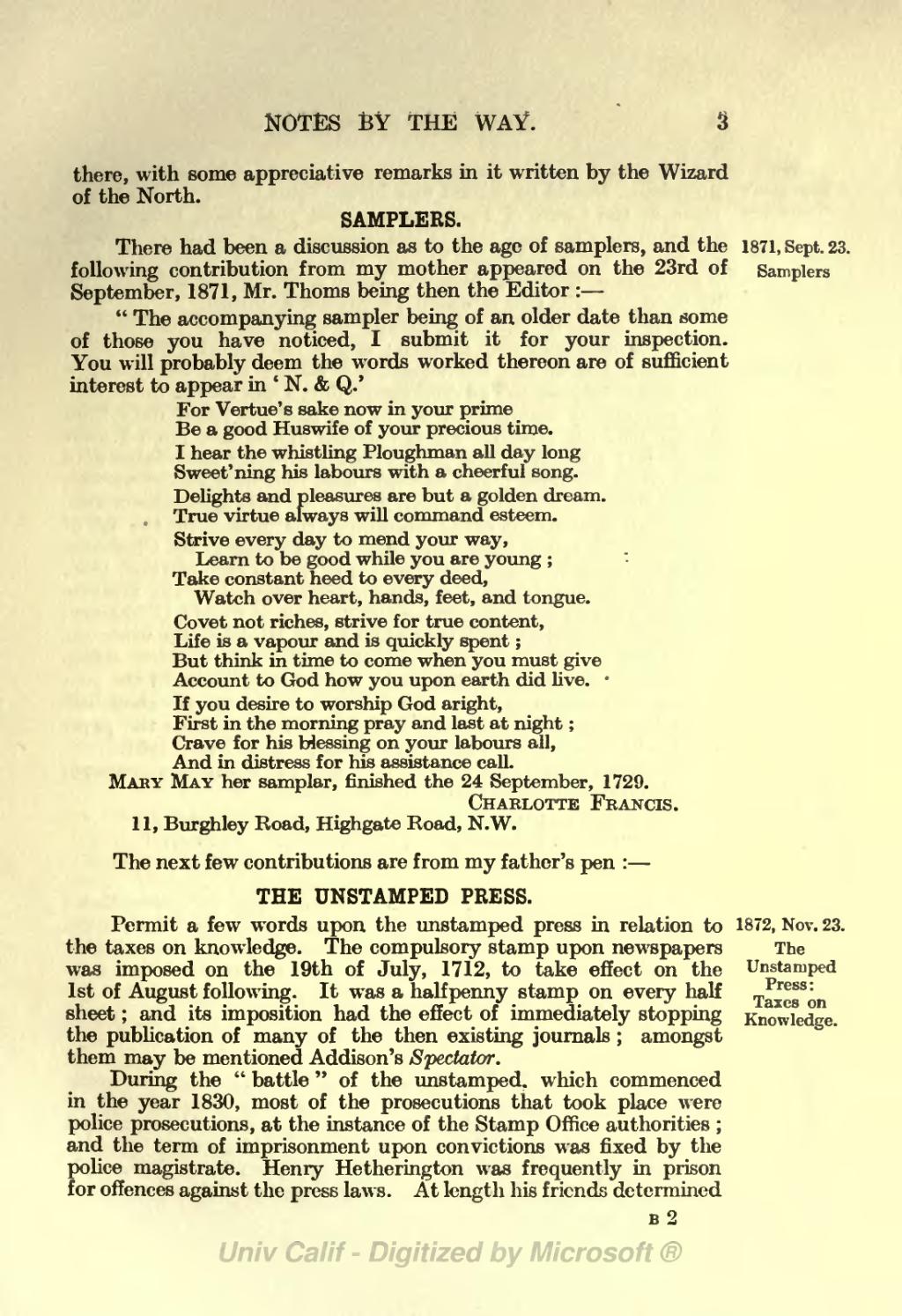there, with some appreciative remarks in it written by the Wizard of the North.
SAMPLERS.
1871, Sept. 23.
SamplersThere had been a discussion as to the age of samplers, and the following contribution from my mother appeared on the 23rd of September, 1871, Mr. Thoms being then the Editor :
"The accompanying sampler being of an older date than some of those you have noticed, I submit it for your inspection. You will probably deem the words worked thereon are of sufficient interest to appear in 'N. & Q.'
For Vertue's sake now in your prime
Be a good Huswife of your precious time.
I hear the whistling Ploughman all day long
Sweet'ning his labours with a cheerful song.
Delights and pleasures are but a golden dream.
True virtue always will command esteem.
Strive every day to mend your way,
Learn to be good while you are young;
Take constant heed to every deed,
Watch over heart, hands, feet, and tongue.
Covet not riches, strive for true content,
Life is a vapour and is quickly spent;
But think in time to come when you must give
Account to God how you upon earth did live.
If you desire to worship God aright,
First in the morning pray and last at night;
Crave for his Hessing on your labours all,
And in distress for his assistance call.
Charlotte Francis.
The next few contributions are from my father's pen :
THE UNSTAMPED PRESS.
1872, Nov. 23.
The Unstamped
Press:
Taxes on
Knowledge.Permit a few words upon the unstamped press in relation to the taxes on knowledge. The compulsory stamp upon newspapers was imposed on the 19th of July, 1712, to take effect on the 1st of August following. It was a halfpenny stamp on every half sheet; and its imposition had the effect of immediately stopping the publication of many of the then existing journals ; amongst them may be mentioned Addison's Spectator.
During the "battle " of the unstamped, which commenced in the year 1830, most of the prosecutions that took place were police prosecutions, at the instance of the Stamp Office authorities; and the term of imprisonment upon convictions was fixed by the police magistrate. Henry Hetherington was frequently in prison for offences against the press laws. At length his friends determined

